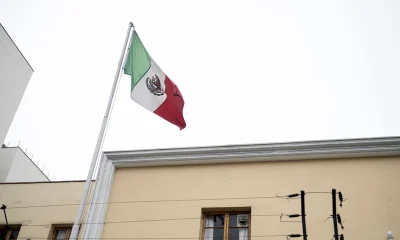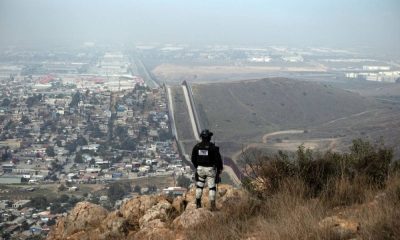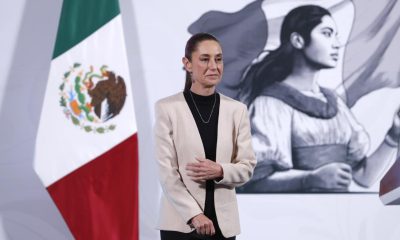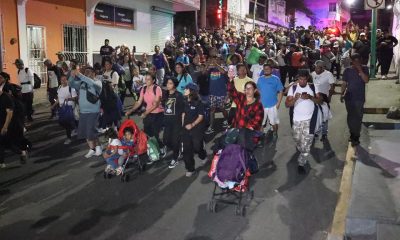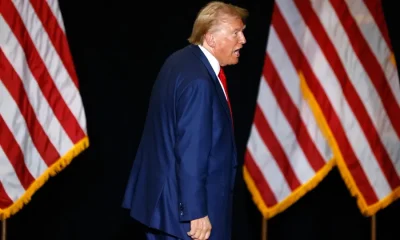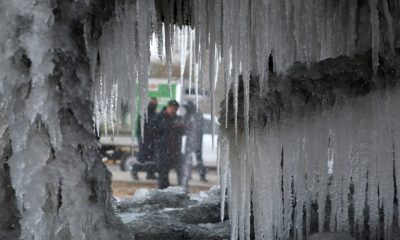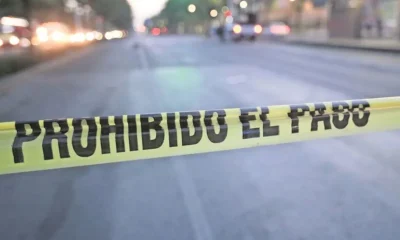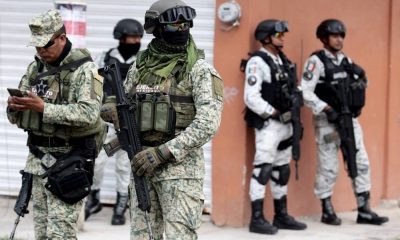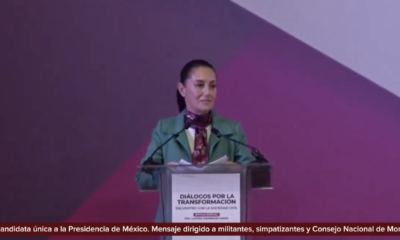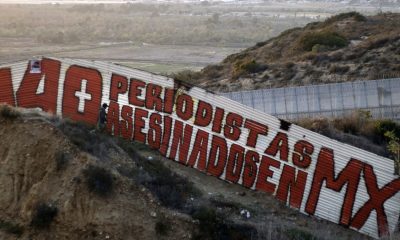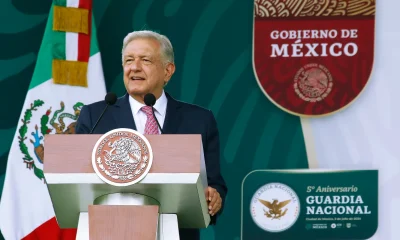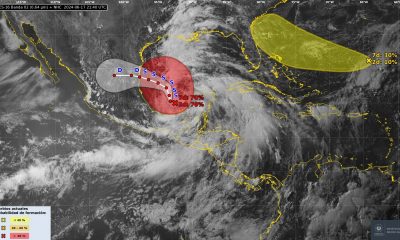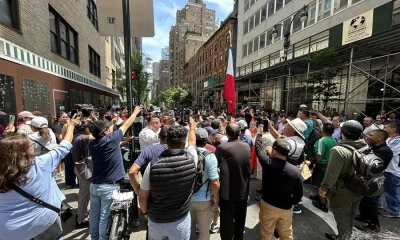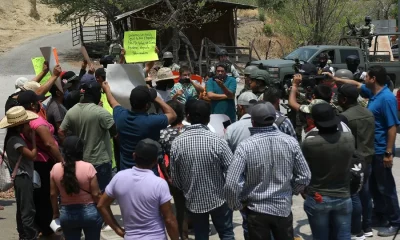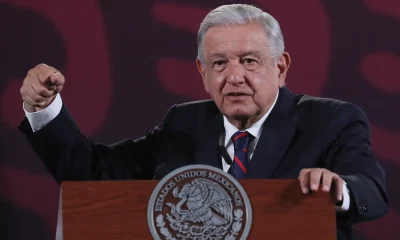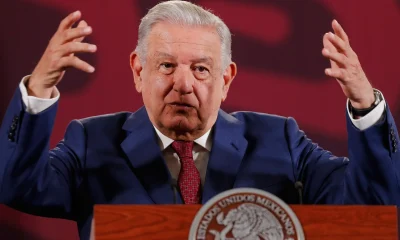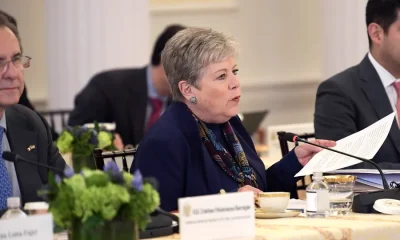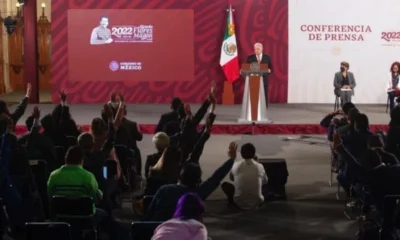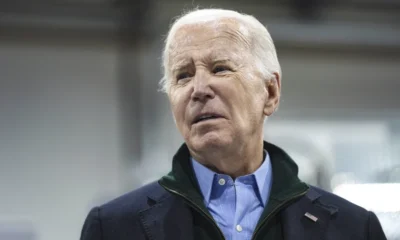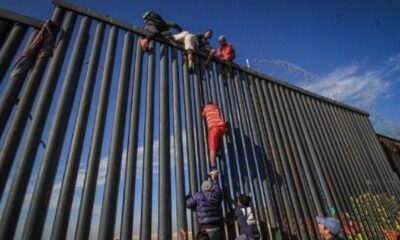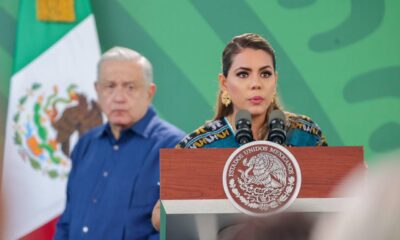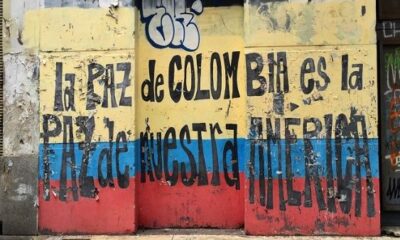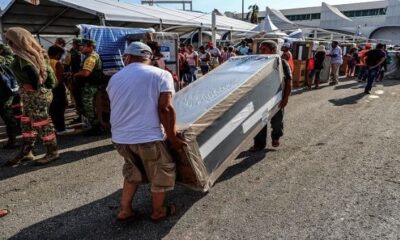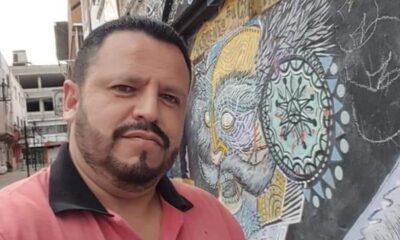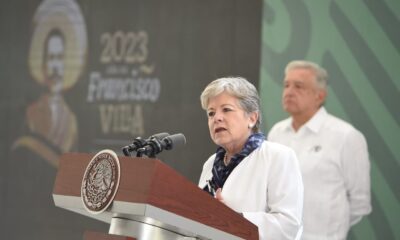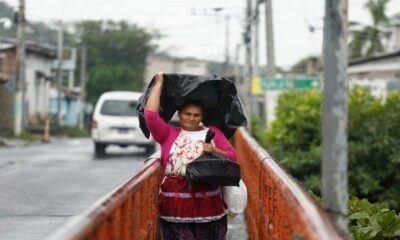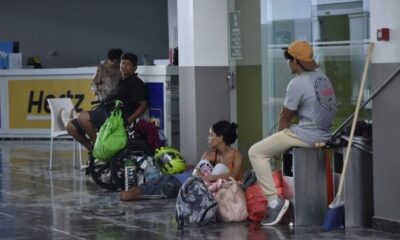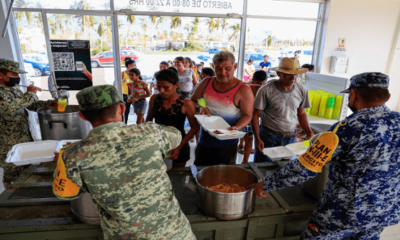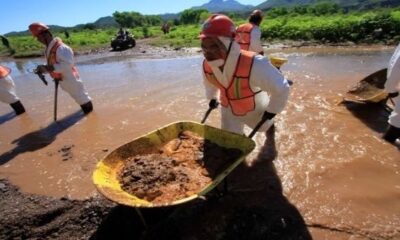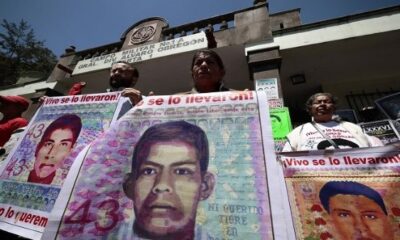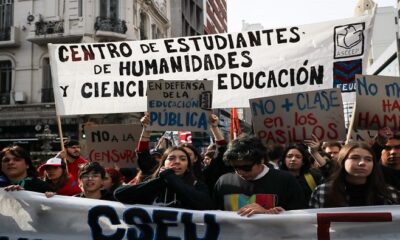International
Former official linked to Ayotzinapa case remanded in custody
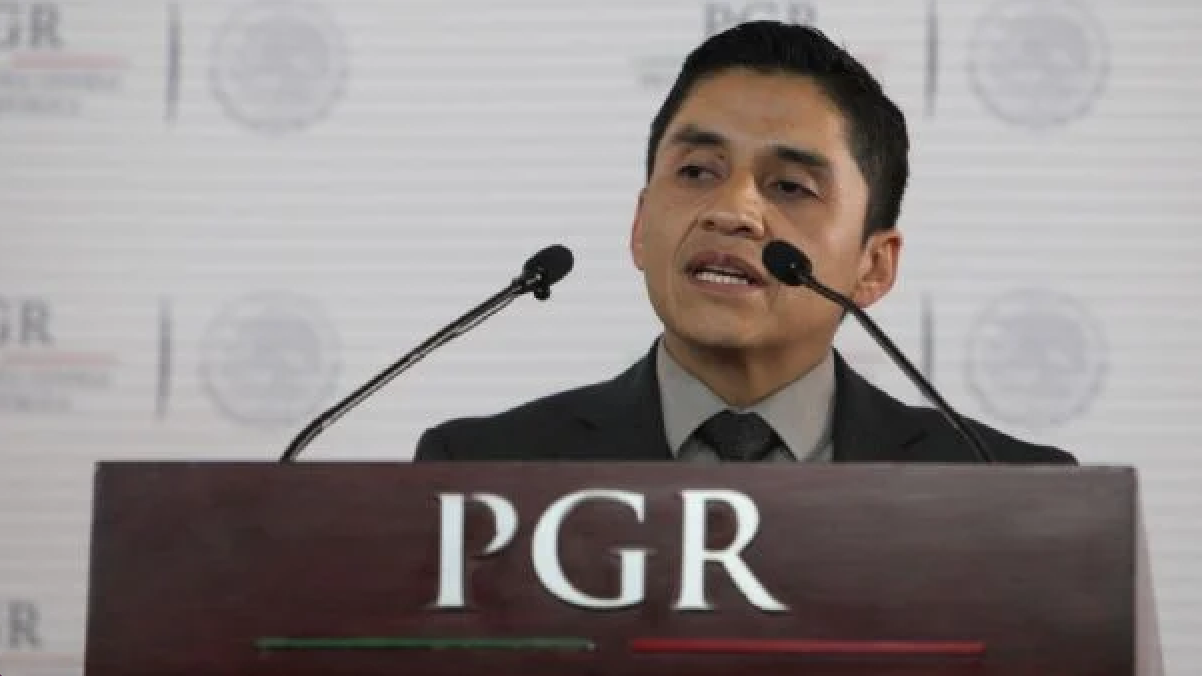
July 3 |
A Mexican federal judge prosecuted this Sunday for the crimes of torture and forced disappearance Gualberto Ramirez Gutierrez, who served as head of the Anti-Kidnapping Unit of the Specialized Deputy Attorney General’s Office for Organized Crime Investigation (Seido) at the time of the disappearance of the 43 Ayotzinapa normalistas, in September 2014.
The Criminal Justice Control Judge, Juan José Hernández Leyva, determined that Ramírez Gutiérrez was a co-perpetrator of these crimes to the detriment of Felipe Rodríguez Salgado, identified as an alleged hitman for the Guerreros Unidos criminal organization, which is accused of the disappearance of the 43 students.
In addition, he ratified his preventive detention, considering that there is a risk of flight and that Ramirez Gutierrez Gutierrez intimidates an official of the Seido who testified against him. On the other hand, the judge gave a term of six months for the complementary investigation of the charges against him.
Ramírez Gutiérrez was arrested last June 26 and shares the accusation with the former Attorney General, Jesús Murillo Karam (arrested) and with the former head of the Criminal Investigation Agency (AIC) of the then Attorney General’s Office, Tomás Zerón (Mexico is trying to extradite him from Israel, where he fled).
In addition to committing acts of torture, the judge considered that Ramírez Gutiérrez participated in illegal interrogations of Rodríguez Salgado in an illegal detention center operated by Tomás Zerón, who was based in the AIC facilities in the Lomas Sotelo neighborhood in the Mexican capital.
Amidst torture and beatings, Rodríguez Salgado was threatened with death there if he did not confess to having participated in the kidnapping and disappearance of the Ayotzinapa students. He remained in prison for four years and was finally acquitted of the charges.
After intense investigations, it has been determined that Ramírez Gutiérrez, Murillo Karam and Tomás Zerón participated in a meeting on October 7, 2014, in which they shaped the so-called “historical truth” of the Ayotzinapa case, according to which all the normalistas were incinerated in the landfill of Cocula, Guerrero state.
Subsequent investigations indicate that they lied to hide the truth from Mexican society and prevent justice from being done in a clear case of State terrorism, committed during the six-year term of office of former President Enrique Peña Nieto (2012-2018).
In this regard, the Undersecretary of Human Rights, Population and Migration, Alejandro Encinas, valued that the arrest of Ramírez Gutiérrez represents an important step towards truth and justice.
International
U.S. Senate Rejects Budget, Bringing Government Closer to Shutdown Amid DHS Dispute

The U.S. Senate voted on Thursday against a budget proposal in a move aimed at pressuring changes at the Department of Homeland Security (DHS), following the killing of two civilians during a deployment of immigration agents in Minneapolis.
All Senate Democrats and seven Republican lawmakers voted against the bill, which requires 60 votes to advance, pushing the country closer to a partial government shutdown that would cut funding for several agencies, including the Pentagon and the Department of Health.
The rejection came as Senate leaders and the White House continue negotiations on a separate funding package for DHS that would allow reforms to the agency. Proposed measures include banning Immigration and Customs Enforcement (ICE) agents from wearing face coverings and requiring them to use body-worn cameras during operations.
The vote took place just hours after President Donald Trump said he was “close” to reaching an agreement with Democrats and did not believe the federal government would face another shutdown, following last year’s record stoppage.
“I don’t think the Democrats want a shutdown either, so we’ll work in a bipartisan way to avoid it. Hopefully, there will be no government shutdown. We’re working on that right now,” Trump said during a Cabinet meeting at the White House.
International
Trump Says Putin Agreed to One-Week Halt in Attacks on Ukraine Amid Extreme Cold

U.S. President Donald Trump said on Thursday that he secured a commitment from Russian President Vladimir Putinto halt attacks against Ukraine for one week, citing extreme weather conditions affecting the region.
“Because of the extreme cold (…) I personally asked Putin not to attack Kyiv or other cities and towns for a week. And he agreed. He was very pleasant,” Trump said during a Cabinet meeting broadcast by the White House.
Trump acknowledged that several advisers had questioned the decision to make the call.
“A lot of people told me not to waste the call because they wouldn’t agree. And he accepted. And we’re very happy they did, because they don’t need missiles hitting their towns and cities,” the president said.
According to Trump, Ukrainian authorities reacted with surprise to the announcement but welcomed the possibility of a temporary ceasefire.
“It’s extraordinarily cold, record cold (…) They say they’ve never experienced cold like this,” he added.
Ukrainian President Volodymyr Zelensky later commented on the announcement, expressing hope that the agreement would be honored.
International
Storm Kristin Kills Five in Portugal, Leaves Nearly 500,000 Without Power

Storm Kristin, which battered Portugal with heavy rain and strong winds early Wednesday, has left at least five people dead, while nearly half a million residents remained without electricity as of Thursday, according to updated figures from authorities.
The revised death toll was confirmed to AFP by a spokesperson for the National Emergency and Civil Protection Authority (ANPEC). On Wednesday, the agency had reported four fatalities.
Meanwhile, E-Redes, the country’s electricity distribution network operator, said that around 450,000 customers were still without power, particularly in central Portugal.
Emergency services responded to approximately 1,500 incidents between midnight and 8:00 a.m. local time on Wednesday, as the storm caused widespread disruptions.
The Portuguese government described Kristin as an “extreme weather event” that inflicted significant damage across several regions of the country. At the height of the storm, as many as 850,000 households and institutions lost electricity during the early hours of Wednesday.
Several municipalities ordered the closure of schools, many of which remained shut on Thursday due to ongoing adverse conditions.
Ricardo Costa, regional deputy commander of the Leiria Fire Brigade, said residents continue to seek assistance as rainfall persists.
“Even though the rain is not extremely intense, it is causing extensive damage to homes,” he noted.
In Figueira da Foz, a coastal city in central Portugal, strong winds toppled a giant Ferris wheel, underscoring the severity of the storm.
-

 Central America4 days ago
Central America4 days agoGuatemala Police Arrest Prison Guard Caught in the Act of Extortion
-

 Central America4 days ago
Central America4 days agoHonduras swears in conservative president Asfura after disputed election
-

 Central America4 days ago
Central America4 days agoBukele leads public trust rankings as UCA survey highlights gains in security
-

 International3 days ago
International3 days agoFootball Fan Killed in Clashes After Colombian League Match
-

 International4 days ago
International4 days agoDoomsday clock moves to 85 seconds before midnight amid rising global risks
-

 Central America3 days ago
Central America3 days agoGuatemala President Says Starlink Terminal Found Inside Prison
-

 International4 days ago
International4 days agoWinter Storm Fern Leaves 30 Dead and Over One Million Without Power Across the U.S.
-

 Sin categoría4 days ago
Sin categoría4 days agoEight Killed in Series of Armed Attacks in Ecuador’s Manabí Province
-

 International2 days ago
International2 days agoU.S. Senate Rejects Budget, Bringing Government Closer to Shutdown Amid DHS Dispute
-

 International4 days ago
International4 days agoSpain approves plan to regularize up to 500,000 migrants in Historic Shift
-

 International3 days ago
International3 days agoMissing Spanish Sailor Rescued After 11 Days Adrift in Mediterranean
-

 International3 days ago
International3 days agoRubio Says U.S. Could Participate in Follow-Up Russia-Ukraine Talks
-

 Sin categoría4 days ago
Sin categoría4 days agoEl Salvador Launches Fourth Year of Ocean Mission to Protect Marine Ecosystems
-

 Central America21 hours ago
Central America21 hours agoPanama Supreme Court Strikes Down Panama Ports Concession as Unconstitutional
-

 International2 days ago
International2 days agoStorm Kristin Kills Five in Portugal, Leaves Nearly 500,000 Without Power
-

 Central America21 hours ago
Central America21 hours agoU.S. and Guatemala Sign Trade Deal Granting Zero Tariffs to Most Exports
-

 International2 days ago
International2 days agoTrump Says Putin Agreed to One-Week Halt in Attacks on Ukraine Amid Extreme Cold
-

 International2 days ago
International2 days agoMan Arrested After Vehicle Crashes Into Jewish Institution in Brooklyn

























